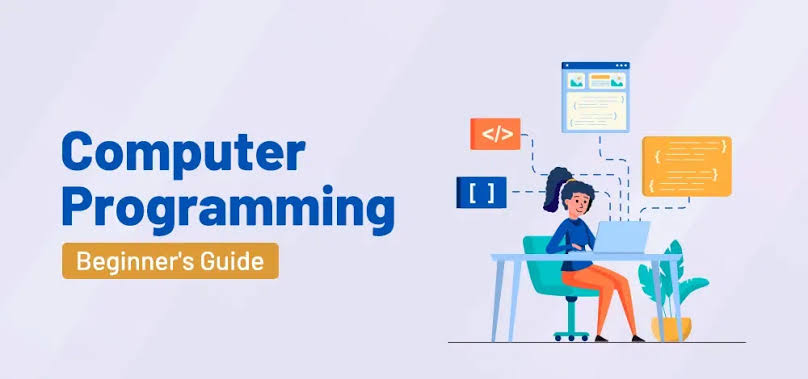Coding, also known as programming, is the process of giving instructions to a computer so it can perform specific tasks. These instructions are written in programming languages that both humans and machines can understand. For beginners, learning to code may seem overwhelming, but with the right approach, it becomes an exciting skill that opens doors to endless opportunities in technology and problem-solving.
What is Coding?
At its core, coding is simply writing commands that tell a computer what to do. Just as humans use spoken languages like English or French to communicate, computers use programming languages such as Python, JavaScript, or C++. Each language has its own rules, structure, and uses.
Learning to code is not just about understanding syntax but also about learning how to think logically and solve problems step by step. This logical thinking skill is often referred to as computational thinking.
Why Learn Coding?
Coding has become a vital skill in today’s world where technology powers nearly every industry.
- It improves problem-solving and critical thinking
- It opens career opportunities in software development, data science, and cybersecurity
- It allows individuals to build websites, apps, and games
- It helps automate repetitive tasks for efficiency
- It fosters creativity by turning ideas into digital projects
Even if you do not plan to become a full-time programmer, coding can still give you an edge in almost any career field.
Choosing the Right Programming Language
One of the first steps for beginners is choosing which language to learn. Each language serves different purposes.
- Python: Great for beginners due to its simplicity, widely used in data science, machine learning, and automation
- JavaScript: Essential for building websites and interactive applications
- Java: Popular in enterprise systems and Android app development
- C#: Commonly used in game development and Windows applications
- HTML and CSS: Fundamental for web design and structure, though not full programming languages
Starting with Python or JavaScript is usually recommended because of their ease of use and large online communities that provide support.
Understanding Basic Coding Concepts
Before diving deep into complex projects, beginners should understand a few key concepts.
- Variables: Containers for storing data such as numbers or text
- Data types: Different kinds of information like integers, strings, and booleans
- Operators: Symbols used to perform tasks such as addition or comparison
- Conditional statements: Commands that execute only if certain conditions are true (if-else logic)
- Loops: Repeated actions until a condition is met
- Functions: Blocks of code designed to perform specific tasks when called
These fundamentals form the foundation upon which more advanced coding knowledge is built.
Tools You Need to Start Coding
To start coding, beginners need a few essential tools.
- A computer with internet access
- A code editor like Visual Studio Code, Atom, or Sublime Text
- Access to online coding platforms such as Codecademy or freeCodeCamp
- A version control system like Git to keep track of changes in projects
- Practice environments like Replit or Jupyter Notebook for interactive learning
These tools make it easier to write, test, and debug code effectively.
Practical Ways to Learn Coding
Learning coding requires consistency and practice. Some effective approaches include:
- Online tutorials and interactive courses for step-by-step guidance
- Watching coding videos and following along with projects
- Practicing coding exercises on platforms like HackerRank or LeetCode
- Building small projects such as calculators, personal websites, or simple games
- Joining coding communities to ask questions and share experiences
Starting small and gradually moving to more complex projects helps in building confidence.
Common Challenges for Beginners
Like any new skill, coding comes with challenges that can frustrate beginners.
- Struggling with debugging errors in the code
- Feeling overwhelmed by too many new concepts at once
- Comparing progress to advanced programmers
- Losing motivation when projects seem difficult
The key to overcoming these challenges is patience and persistence. Every programmer, no matter how advanced, once struggled as a beginner.
The Future of Coding Skills
With the rise of artificial intelligence, robotics, and automation, coding will remain one of the most important skills globally. Many industries are shifting to digital platforms, and professionals with coding knowledge will be in high demand.
Even beyond career opportunities, coding is becoming a basic digital literacy skill, much like knowing how to use the internet or office software. In the future, having coding knowledge will be as essential as knowing how to read and write.
Conclusion
Understanding the basics of coding for beginners is the first step toward unlocking a world of opportunities. Coding is not just about writing lines of text but about problem-solving, logical thinking, and creativity. By starting with beginner-friendly languages, learning key concepts, and practicing consistently, anyone can gain the skills needed to thrive in a technology-driven world.
With time and effort, beginners can move from writing their first line of code to building applications, websites, and even innovative solutions that shape the future. Coding is a journey, and every step taken brings new skills and possibilities.




Amazing
Splendid
Fantastic
I enjoyed reading this